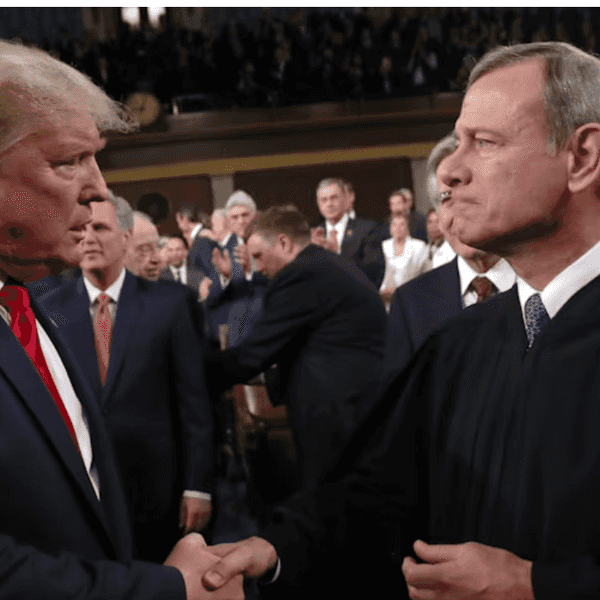
America is nearly gagging over its two probable choices for president.
The upcoming general election feels like an indigestible dinner menu: Would you like boiled liver or the five-day-old pot pie? Can’t there be a third option?
For those with that fervent yet unrealistic wish — and that likely includes a substantial number of voters — a new book on the political circuit will appeal.
“A Declaration of Independents: How We Can Break the Two-Party Stranglehold and Restore the American Dream” is the title. It was written by Greg Orman, who tried to blaze a trail around politics as usual in a run for the U.S. Senate, and failed.
Orman’s 15 minutes of national attention came in 2014, when he threatened to end the Congressional career of Sen. Pat Roberts of Kansas, who was a three-term incumbent at the time.
Orman, a Princeton-educated, self-made businessman, ran as an independent. Through a confluence of breaks, savvy and hard work, he drew enough support to freak out the GOP. Losing Roberts’ seat would have put the party’s control of the U.S. Senate in jeopardy.
Suffice it to say, it was an all-hands-on-deck moment for Republicans. The heavy hitters of the party were trotted out to Kansas. Their job was to tar Orman as a liberal in disguise, a stooge of Harry Reid who would solidify the Obama White House agenda.
It worked. Orman lost, although he garnered 43 percent of the vote.
Many of Orman’s positions on issues fell in the middle of the political spectrum; some aligned with views more typical of Democrats, others with Republicans. His platform was nuanced — not what voters get from the typical candidate of either party.
The experience of that election confirmed in Orman a determination to address America’s political malaise head-on. Hence the book. One of his guiding insights is this: “Partisanship has become the new prejudice.”
Consider these statistics, highlighted in the book: In 1960, 4 percent of Democrats and 5 percent of Republicans said they would be “displeased” if their child married someone from a rival political party. By 2010, one-third of Democrats and half of Republicans said they would be “somewhat” or “very” unhappy at the idea of their child marrying a person of the opposing political party.
On the other hand, a full 43 percent of Americans identify as independents. And 35 percent say they are moderates. The problem is they often don’t have a candidate to support. So they hold their nose and choose. Or they sit out Election Day.
In the book, Orman details the many factors that have contributed to this problem: the gerrymandering of Congressional districts, the negativity that has chased moderate (often female) candidates from the field, the rise of partisan think tanks and news outlets, the shrill voices of talk radio, the ethical pollution of lobbyists and campaign contributions.
Orman writes: “[I]ndependence from the party line, from the special interests that control both major political parties through campaign cash, and from extremists who control each party’s primary process — that’s what this country needs to move forward.”
Orman’s plea is for the centrist, unaffiliated electorate to back independent candidates who can run up the middle to victory while the two other parties push candidates on the extremes.
Yet in the political scene as it’s now constituted, independents run the risk of becoming ciphers in Congress, shut out by party loyalists. They also face the question that stymied the Orman campaign: Who will you caucus with?
Orman’s answer on the campaign trail was simple: Whichever party is working to solve the problem under consideration. He was branded a liar.
That dynamic might change if even a handful of such candidates are elected at the national level — say, five true independents the Senate. That is a long-term goal of the Centrist Project, which backed Orman’s campaign.
The Centrist Project reports that 74 percent of Americans are angry about the way government works. And 89 percent disapprove of how Congress does its job.
Sadly, those very people are likely backing opposing candidates in the current election cycle and might not recognize each other for all the shouting and finger-pointing.
People fed up with Washington are largely fueling the campaigns of Bernie Sanders and Donald Trump. One wonders what might be possible if those people could be persuaded to recognize their shared values, to research the roots of their problems dispassionately and to withhold assigning blame to scapegoats.
(Mary Sanchez is an opinion-page columnist for The Kansas City Star. Readers may write to her at: Kansas City Star, 1729 Grand Blvd., Kansas City, Mo. 64108-1413, or via e-mail at msanchez@kcstar.com.)
(c) 2016, THE KANSAS CITY STAR. DISTRIBUTED BY TRIBUNE CONTENT AGENCY, LLC
Photo: U.S. Senate Independent candidate Greg Orman, left, shakes hands with Sen. Pat Roberts following their debate at the KSN television studio Oct. 15, 2014 in Wichita, Kan. (Fernando Salazar/Wichita Eagle/MCT)








